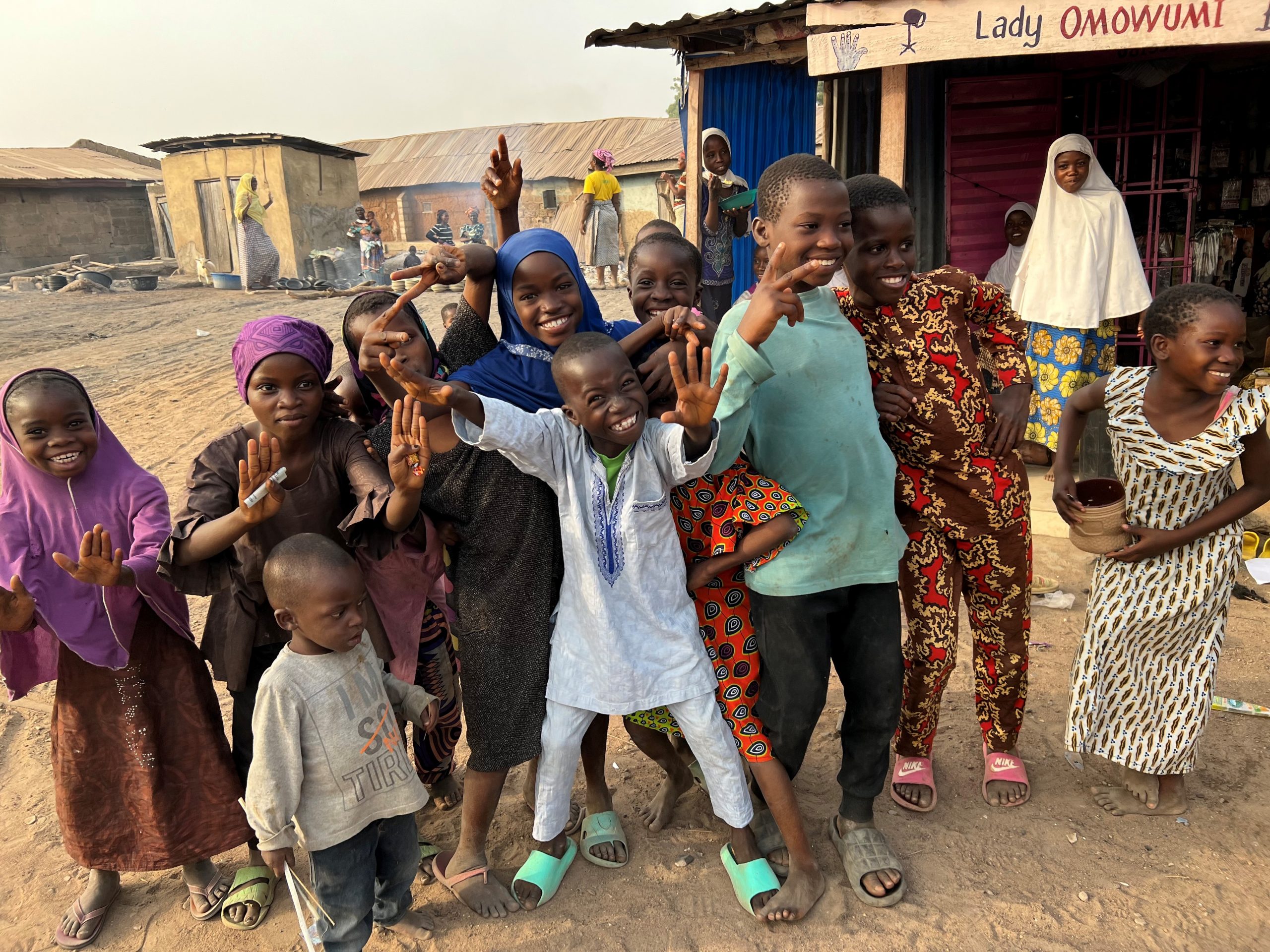Rb-NET Case Study – Chemotherapy in Nigeria
The following blog is written by Dr Mattan Arazi, Opthalmology resident at Sheba Medical Center, Israel, as they work with Dupe Popoola, a Pediatric ophthalmologist in Nigeria, and her team to set up an intra-aterial chemotherapy service in the country.
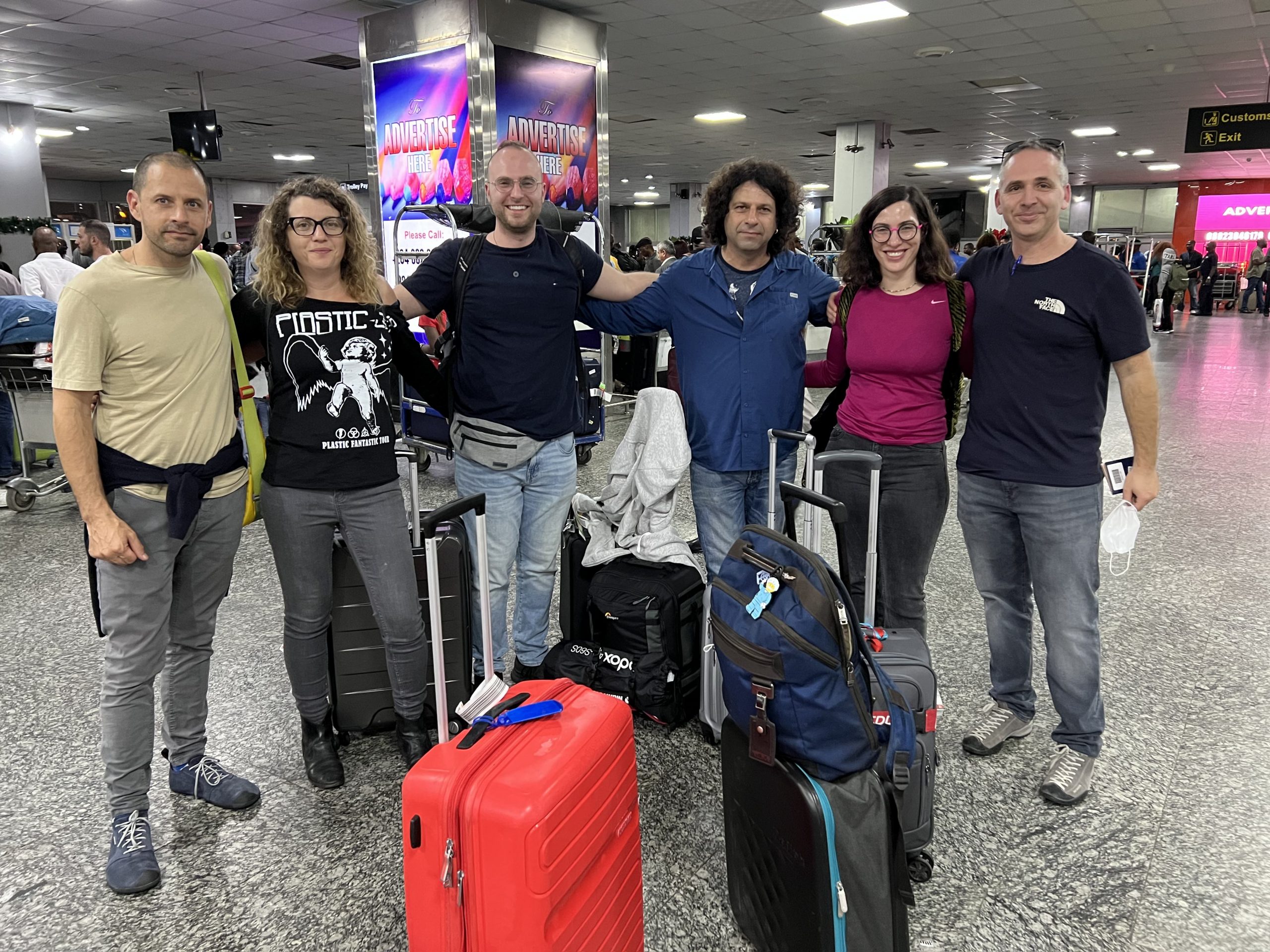
Day 1
7:31 AM Ben Gurion Airpot, Israel
I’m standing outside Ben Gurion airport, mentally preparing for the mission ahead. Didi Fabian, a consultant ocular oncologist, as well as founder of Global Retinoblastoma Group, stands next to me going over the details of the flights. Just 6 months prior, Didi received a phone call from Dupe Popoola, a Pediatric ophthalmologist in Nigeria, about an opportunity to help set up intra-arterial chemotherapy service in Nigeria. Nigeria has one of the largest cases of retinoblastoma patients worldwide (something like 400 cases) in a population of over 200 million people. Didi and Popoola are colleagues as well as members of the Rb-NET. Didi naturally accepted.
So a team of medical specialists was put together – Didi, the team leader and ocular oncologist, Shani, a Pediatric oncologist, Michal, a Pediatric Anesthesiologist, Gal, a neuro-interventionalist, and I, an opthalmology resident. A photographer from Y-net and national newspaper company in Israel joins us. We spent the past few months preparing for the trip – reviewing the cases of Rb patients to treat and organizing the logistics. How is the chemo made? Who will transport the chemo from the pharmacy to the hospital? How will we ensure safety of the kids while they are anaesthetised? Things you don’t think about. Gal across from me checks his bag to ensure all the medical equipment is there. Shani and Michal grab their suitcases. The excitement is unbearable.
9:56 PM Lagos, Nigeria
After two long flights, the later coursing over Sahara desert, we finally arrived in Lagos, Nigeria. We were immediately greeted by Dupe and her team who graciously welcomed us. The excitement in her eyes was unforgettable! After a quick introduction of both team members, as well as a brief overview of the plan for tomorrow, we are headed to our hotel. Tomorrow morning we are waking up bright and early to start the intra-arterial chemotherapy treatment for the kids.
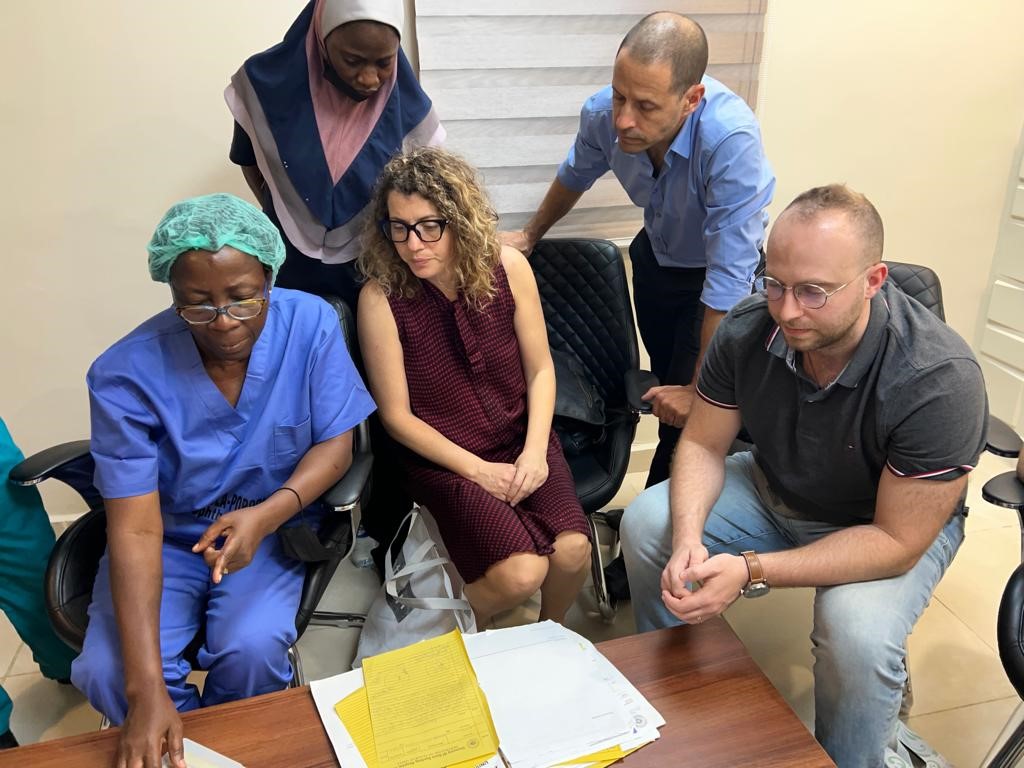
Day 2
7:13 AM Lagos
We arrive to the hospital and meet Dupe and her team of medical specialists. We are all nervous of the long day ahead of us. Dupe reassures her with her bright smile that everything will be okay. The passion in her eyes is contagious. What an incredible physician.
7:31 am Lagos
We gather our equipment and head inside to discuss the plan for the day, as well as review the cases of the children we will be treating. The first child is a 46 month old female being managed for Bilateral Retinoblastoma (ICRB RE group E & LE group C). The child had already recieved two courses of neoadjuvant intravenous chemotherapy as well as focal consolidation therapy in her left eye. We discuss the case, and decide to proceed with bilateral intra-arterial chemotherapy. Or in other words, we will be catheterizing and injecting chemotherapy into both eyes, one after the other. In the background, the power goes out for a few seconds. I’m shocked how indifferent Dupe and her team are. I guess it’s something normal here.
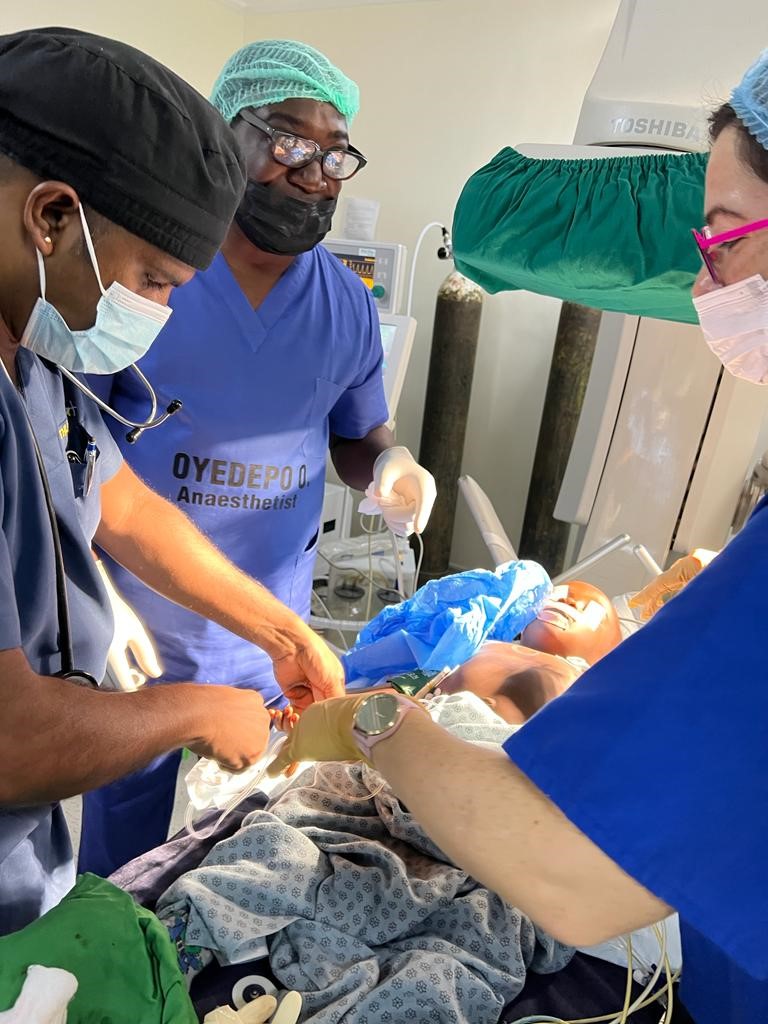
7:47 AM Lagos
We review the other cases, and head into the cath lab to begin the proceedure. Michal joins the local Nigerian anesthesiologist in sedating the child. Gal joins the other intervenetional radiologist, Dr. Ninalowo, and starts prepping the equipment. I join Didi and Michal in the other room. After a few minutes, the child is successfully intubated and mechinally ventolated. Gal looks at us from across the room with his calming eyes, and shifts his attention to the monitors. Dr. Ninalowo joins his side, and they get to work.
9:45 am Cath Lab
Throughout the procedure, Gal is showing Dr. Ninalowo the technique as well as describing possibe complications. Finally, Gal accesses the opthalmic artery and injects contrast, outlining the vessels of the right eye.Dr. Ninalowo and Dupe start preparing the chemotherapy to inject into the eye. They agreed to inject three agents – melphanan, topetecan and carboplatin. After successfully injecting the chemotherapy, Gal retracts the catheter and starts proceeding to the contralateral eye. However, this time, the anatomy of the opthalmic artery of the left eye is different. Cannulation may be more difficult, however gal and Dr. Ninalowo successfuly access the opthalmic artery. Another cycle of chemotherapy agents enter the left eye, and the treatment for bilateral IAC has been completed. The entire medical team of Nigerian and Israeli doctors start applauding in joyment. I look around the room, and am just astonished by the amazing work we have accomplished together. The collaborate effort of all the doctors, nurses, pharmacistis and hospital staff in the room, from different parts of the world, made this possible. I pull Dupe and Dr. Ninalowo aside.
10:43 am Cath Lab
The next child is prepped, and this time Dr. Ninalowo takes lead. Gal stands at his side, watching his every move, guiding him as he advances the catheter through the femoral artery up to the carotids. Accessing the opthalmic artery this time proved difficult. With the flick of his wrist, I see the wire dance on the screen. After the third attempt, Dr. Ninalowo successfuly advanced into the artery and injects contrast. Chemotherapy is given, and the catheter is removed. I look at Didi, and can see the joy in his eyes. This is it – this is what we have been preparing for the past 6 months. The ability to establish a formal intra-arterial chemotherapy service in Nigeria was a dream. And now the dream has come true.
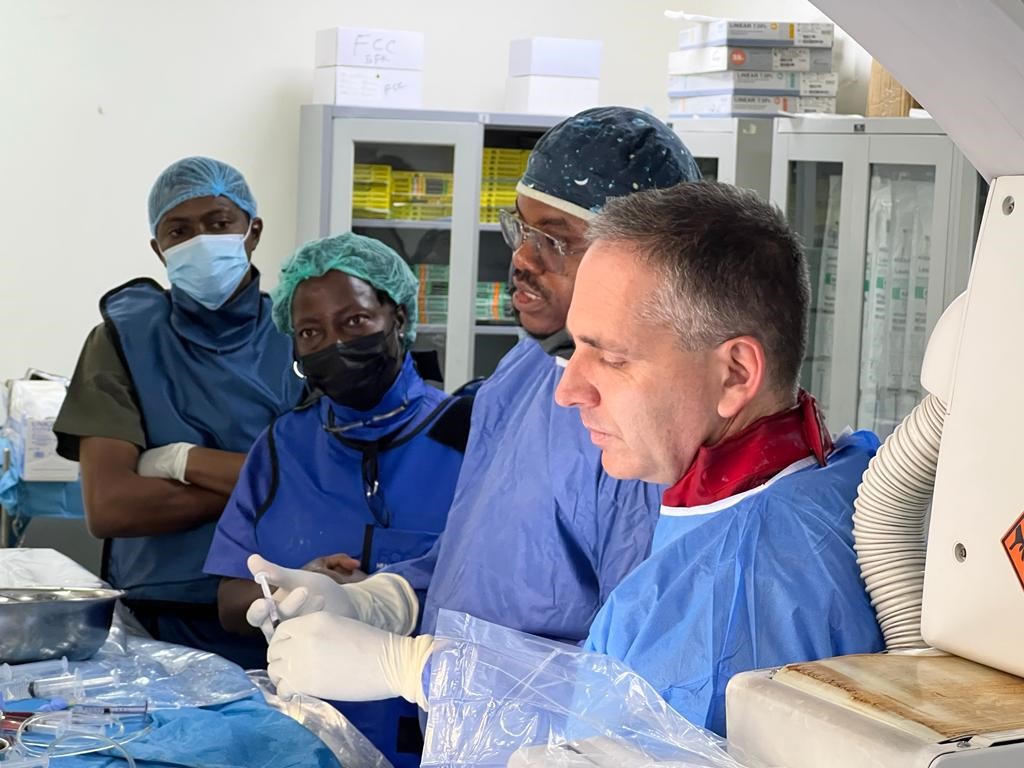
Day 3
5:35 AM Lagos
We depart for the airport, driving over one of the longest bridges in Africa, the Third Mainland Bridge. To my right, I see a dark outline of Lagos Lagoon. We finished our IAC treatments here in Lagos, and now we are headed to Ilorin to continue our mission.
10:05 am Ilorin
We arrive at Ilorin Teaching hospital, and are warmly greeted by Dupe, as well as the head of the hospital, and other members of the hospital board. We gather in a conference room, and Dupe shares her story of how Retinoblastoma has personally affected her life. I was shocked to hear that during her residency training, every case of Rb was considered extra-ocular disease. We are graciously welcomed by the head of the hospital, and exchange gifts as a symbol for our appreciation for the hospitality, as well as establish a formal connection between two major hospitals – Sheba Medical Center and Ilorin Teaching hospitals. It was truly heartwarming to see the current project as a leading example of international collaboration against a fatal pediatric illness.
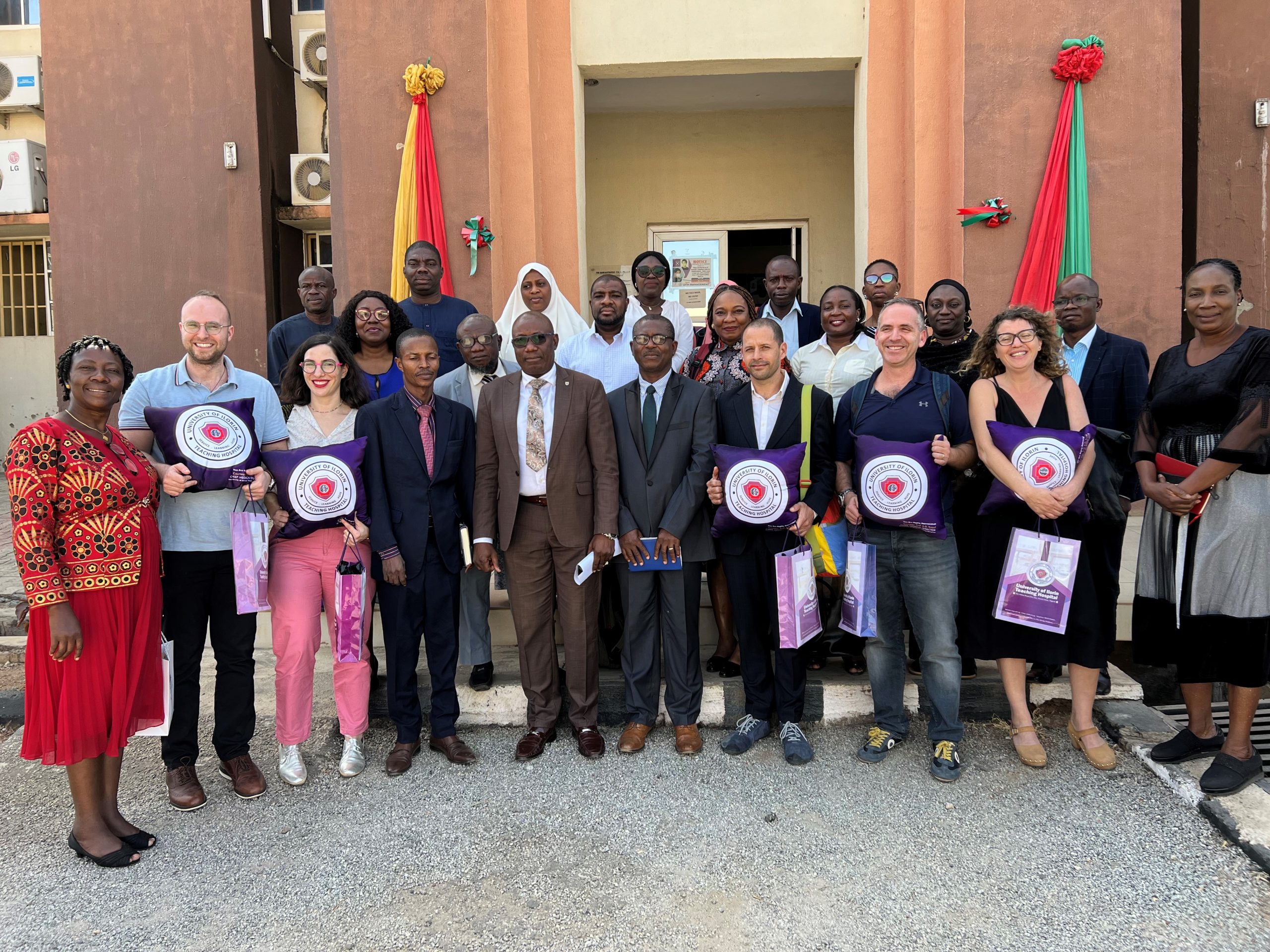
11:30 AM Ilorin
Part of the project was to host a formal academic symposium that includes topics from a variety of disciplines and subspecialities related to retinoblastoma, including ophthalmic and pediatric oncology, anesthesiology, interventional radiology, and global health. Didi gives a brief introduction on the initiative, as well as history of Retinoblastoma. Dupe speaks about the struggles of treating Retinoblastoma in Nigeria. She provides a quote by Roger Steinhert – “our current challenge is not technological, but rather social,” providing anecdotes of the difficulties associated with education, financing treatment as well as access to care.
The rest of us take the stage, giving lectures in respect to our specific fields in medicine related to retinoblastoma. We focus on intra-arterial chemotherapy treatment, educating about the indications, complications, surgical techniques, anaesthesia considerations, comparisons to intravenous chemotherapy and contraindications. What an experience it was to be able to lecture in front of an audience of Nigerian colleagues, physicians, nurses, medical students and pharmacists! I truly believe spreading knowledge is one of the key ways to battle this devastating pediatric disease.
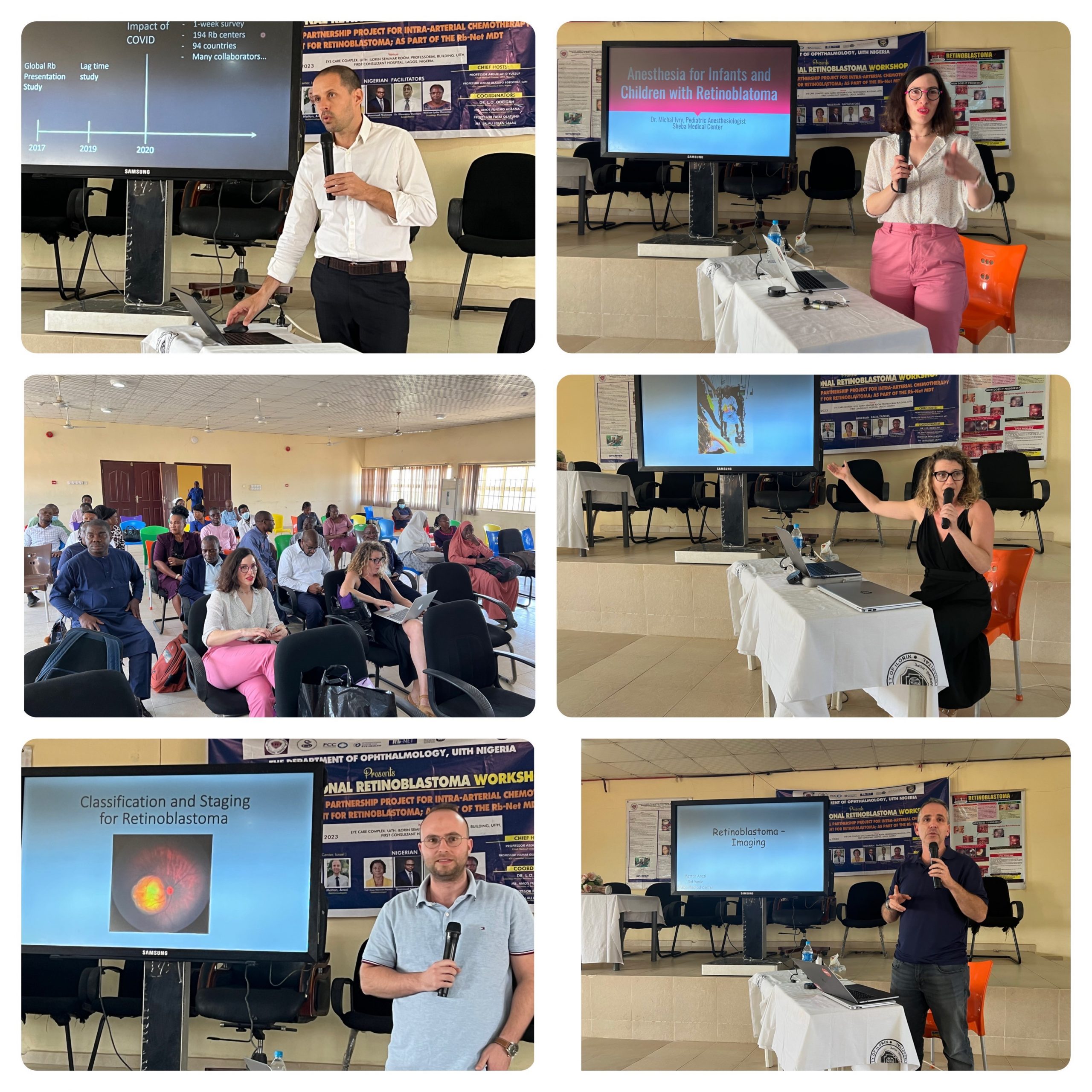
Day 4
9:00 AM Ilorin University Hospital
We finish up our symposium, and conclude with a Q A between us and Nigerian physicians. We learn about unique problems the local physicians face here. I was surprised to hear that there is no socialised healthcare system in Nigeria, and therefore families are unable to afford VEC chemotherapy treatment. Many of these children die due to a lack of financial support. This invigorates me, and I step outside the room. I see a group of local patients waiting to enter the clinics.
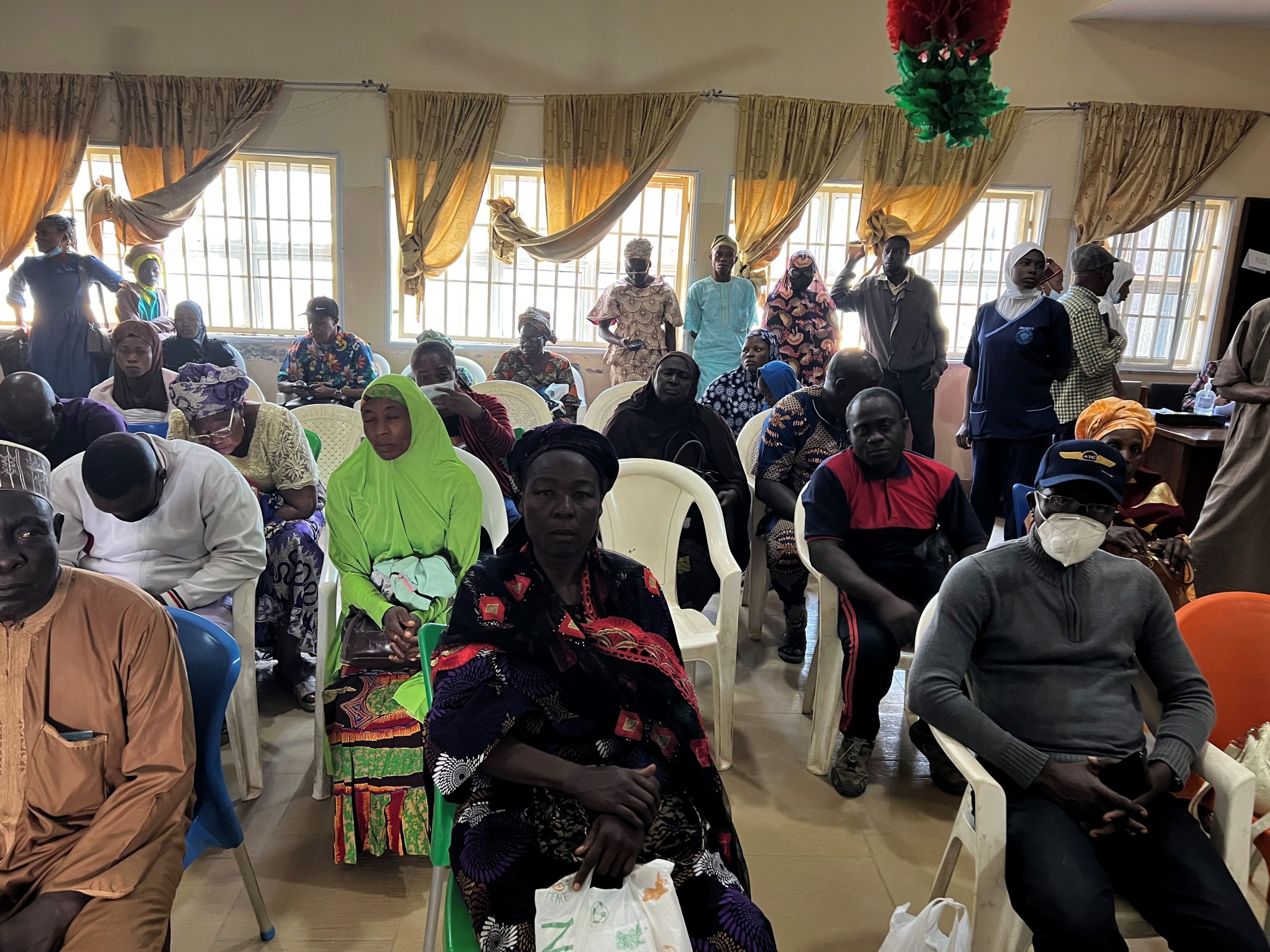
I walk the halls of the hospital, and peek inside a room. A child with with rhabdomyosarcoma is lying on a hospital bed next to his mother. In the other room, a new patient with very advanced extra-ocular retinoblastoma is greeting the nurse. I overhear the mother saying that lack of transportation from her village was the reason that the child’s disease progressed so much. Dr. Dupe tells me later that this is a regular case for her.
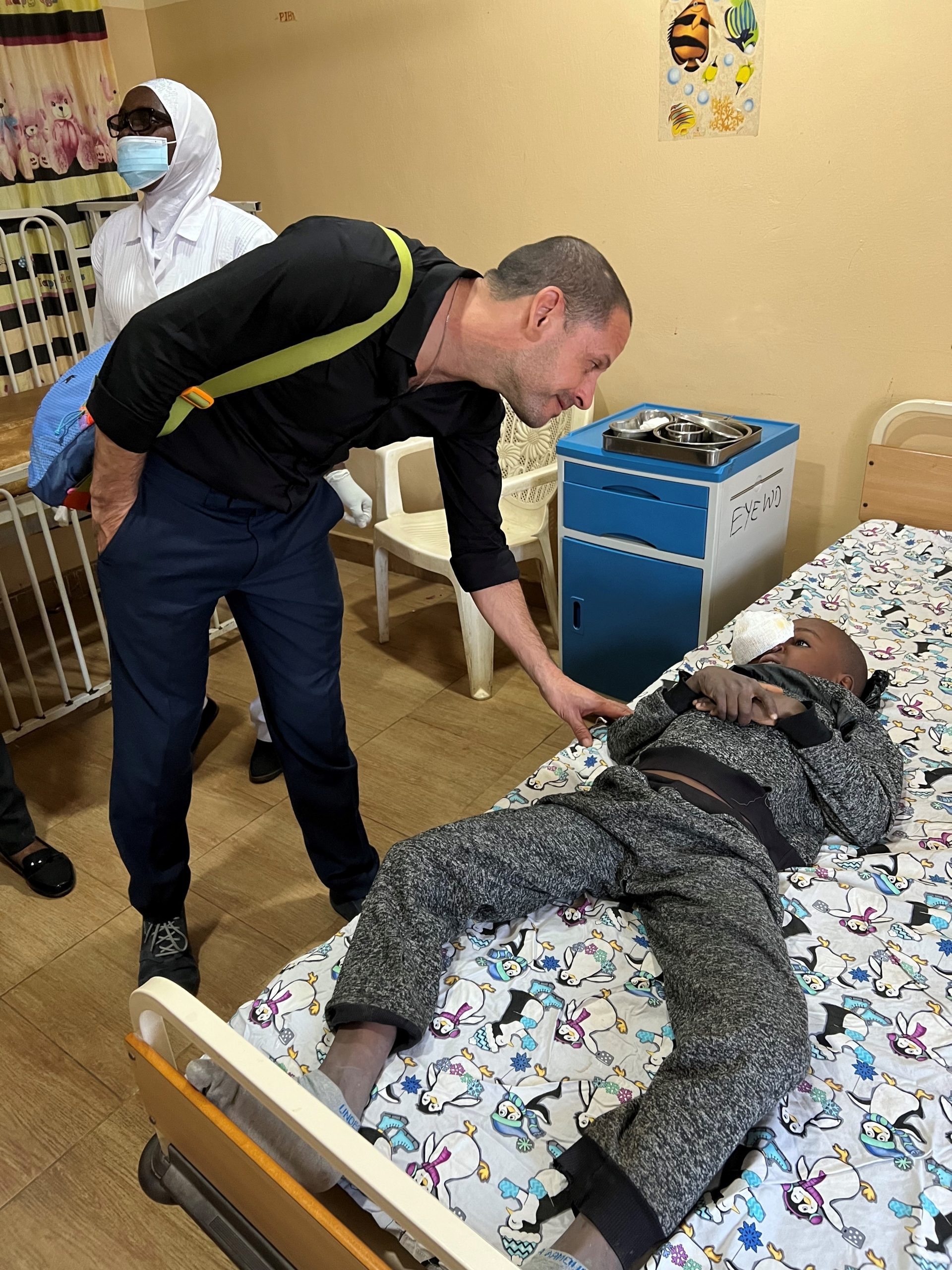
10:43 AM Ilorin University Hospital
We begin the examination under anesthesia (EUA’s). The first patient is a 1 year old female with bilateral retinoblastoma, left eye already enucleated. Dupe explains that they are struggling to save the other eye. Didi and I take turns examining the eye, and then we all turn towards the screen while Dupe uses the camera to take still photos. Around me the Nigerian physicians are watching the screen, asking questions while Didi and Dupe answer. What an amazing experience to be able to examine these children together with the local physicians. True collaboration.
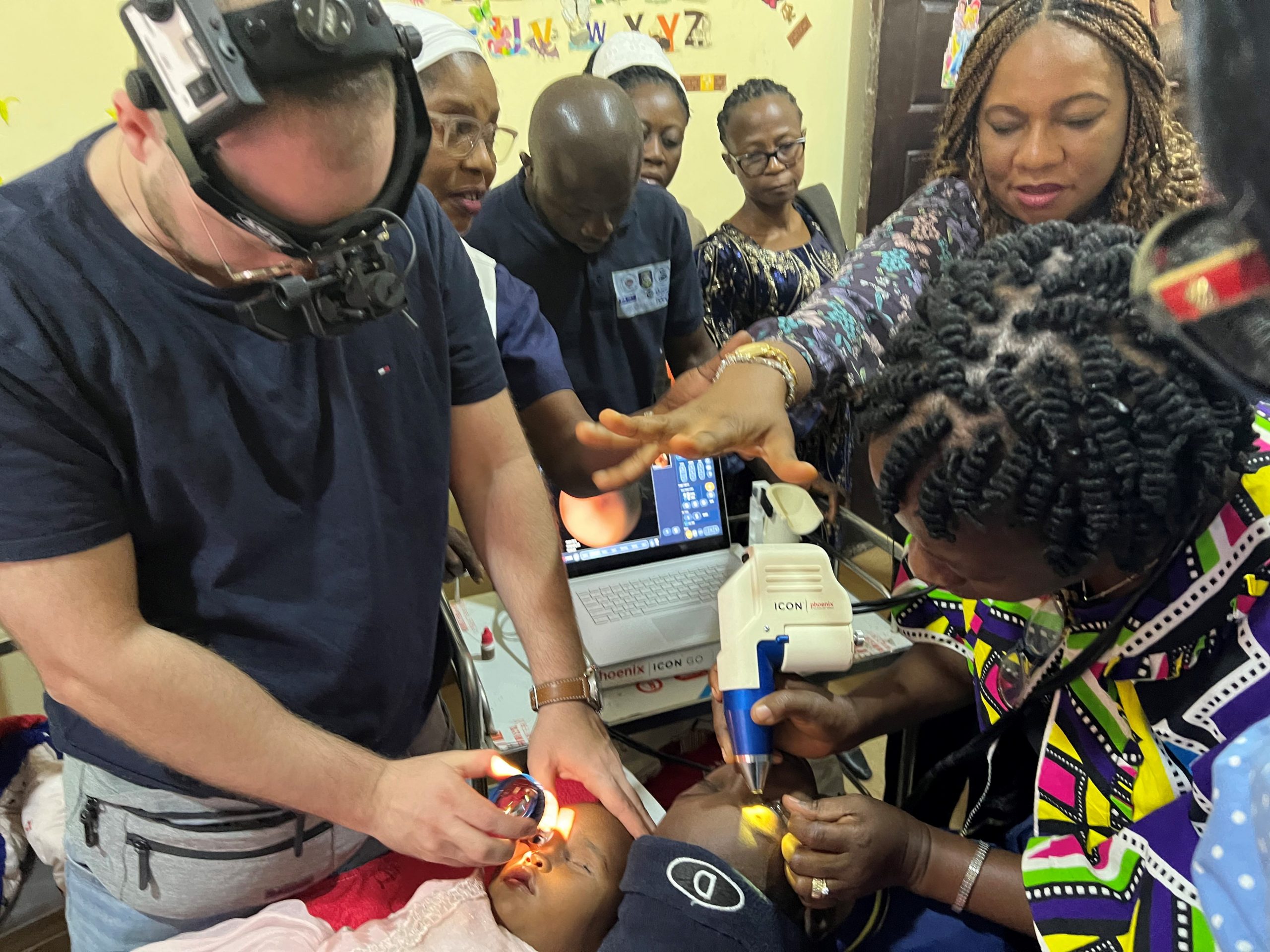
13:30 AM
We spend the rest of the afternoon performing EUAs on children, deciding whether to continue observation or referral to treatment. Dupe explains that this is tricky because not every treatment is available, or the parents can’t afford it.
Afterwards, we return back to the conference room where Dupe gives some closing remarks. At the completion of the project, we receive a warm thank you from Dupe and her colleagues in Nigeria. We actually all started to dance in happiness from the amazing work we we were able to accomplish together this week. What joy!
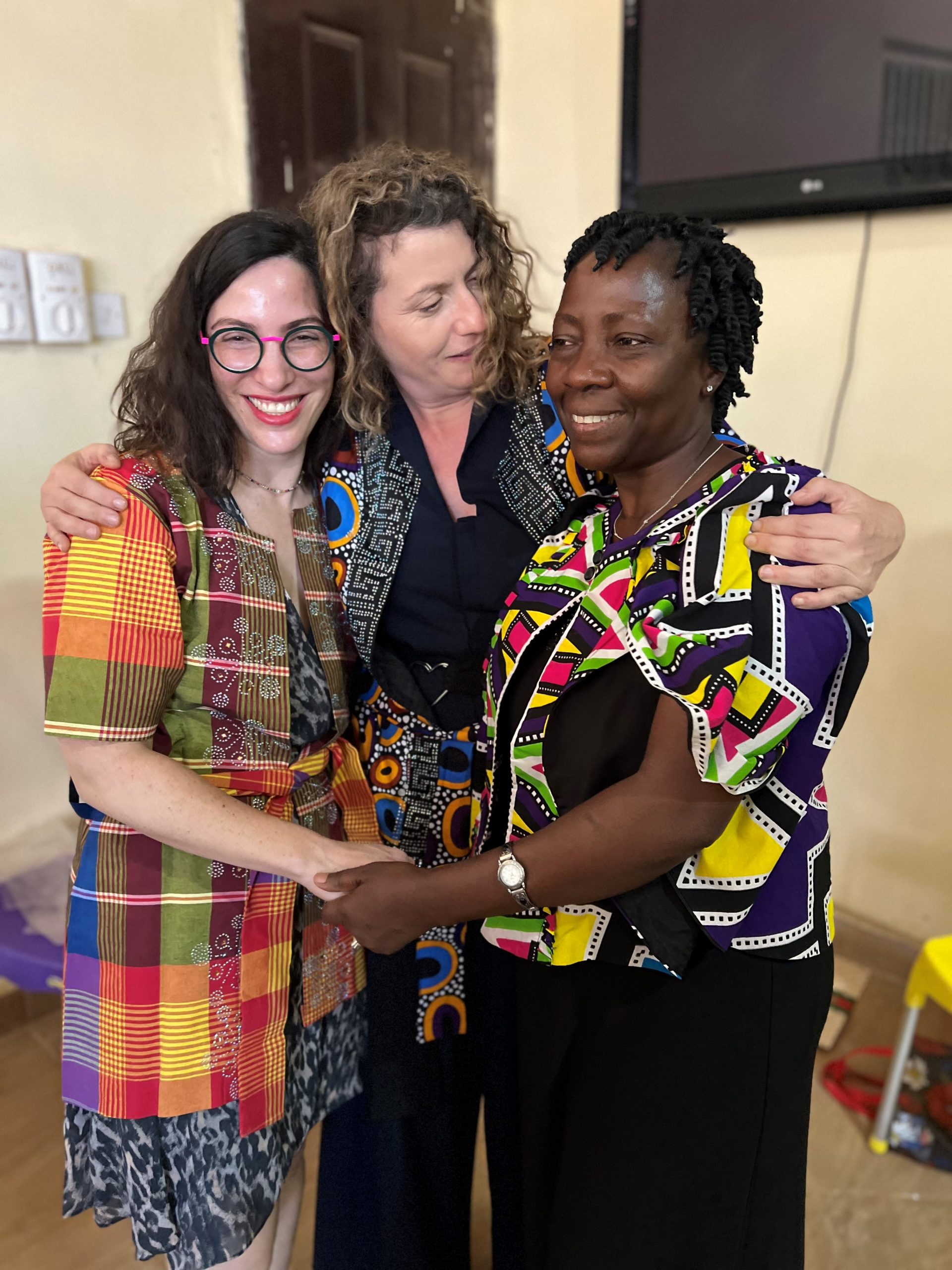
The Israel- Nigeria Retinoblastoma workshop was a life changing experience for all of us. I’m touched by the amazing people I met this week. Our goal to establish a formal IAC Center here in Nigeria was beyond successful. A true example of an international collaboration against a fatal Pediatric illness, a means to share knowledge and resources with our colleagues across the world, and a stepping stone for future projects to come. Nigeria you impacted me beyond belief. But to whom ever is reading this, our story is not finished. Who knows where we will be next. There is much work to be done.
